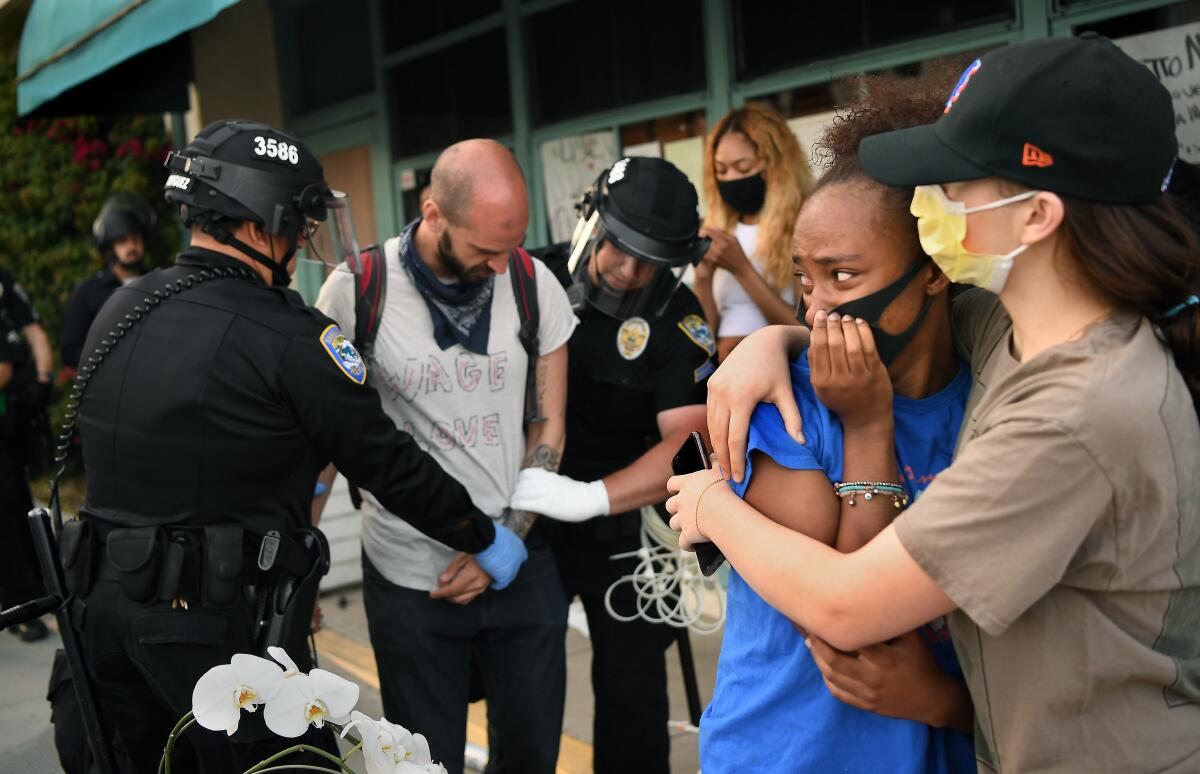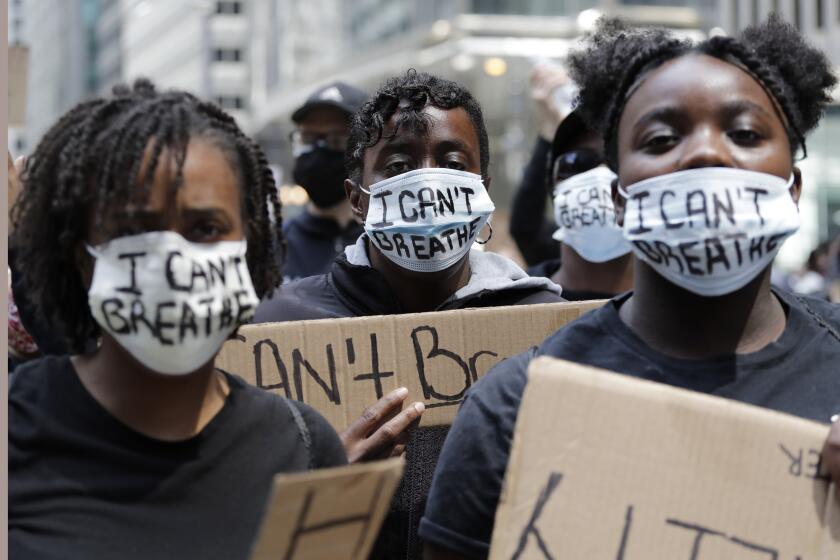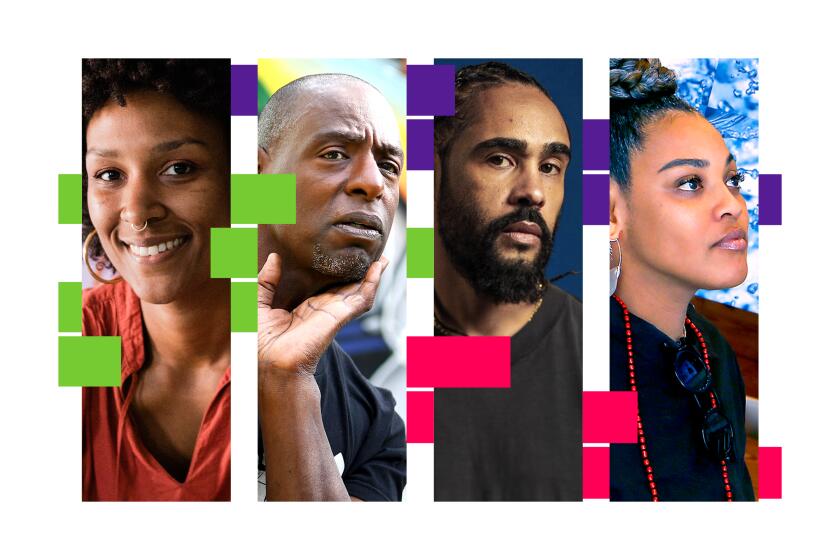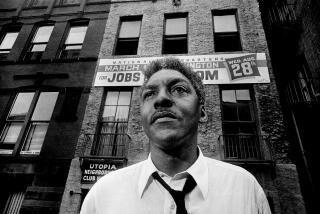What is anti-racism? And what do experts say you can do?

Protests in Los Angeles and around the United States in response to the killing of George Floyd have put a spotlight on the concept of anti-racism. Here’s a primer, plus suggestions from experts and readers about what people can do.
What is anti-racism?
Anti-racism “is fundamentally identifying the structures, policies and beliefs that create racism in society,” said Terence Keel, an associate professor at UCLA with a split appointment in the Department of African American Studies and the school’s Institute for Society and Genetics. “Anti-racism work involves education, it involves organizing, and it involves knowledge-sharing at its core.”
Whether you’re a person of color or white, anti-racism is moving from being a nonracist or a colorblind person toward commitment to racial healing and justice, says Anneliese A. Singh, associate dean for diversity, equity and inclusion at the University of Georgia’s School of Education.
Taking on anti-racism work will look different depending on who you are, experts said. There is an inherent privilege to being born white, Keel said, and part of that privilege is the freedom of not having to think about how society is organized to benefit white people. Part of anti-racist work for people who are white is understanding the structures, laws and socially accepted beliefs that construct their privilege and white identity.
But Keel said: “There’s not a one-size-fits-all response for how to do anti-racism work.”
One response has been to donate to causes you believe in. If you are interested in giving, keep in mind that not every organization’s donation page will look the same — corroborate with other sources to verify. For instance, an organization may host its donations on its own website, or it may rely on a third-party platform such as Venmo or GoFundMe.
“It’s important to know who you’re giving the money to,” Singh said, “because we have a lot of bad actors out there.”
You should also understand how an organization’s programming operates before committing a donation. You may also want to find and read an organization’s 990 form — also known as a nonprofit tax return.
Times readers and experts pointed to mutual aid funds and supporting black-owned businesses as two ways to contribute.
The main concern of black people right now isn’t whether they’re standing three or six feet apart, but whether their sons, husbands, brothers and fathers will be murdered by cops.
Mutual aid and bail funds
Mutual-aid groups are funneling donations to individuals who have lost work or who are struggling to pay for rent or childcare during the coronavirus pandemic. One is Mutual Aid LA, a local grassroots group that works closely with a number of L.A.-based organizations.
There is overlap between people who are protesting and those who have been affected economically by the pandemic, said Kendall Mayhew, an organizer with Ground Game LA, which is a part of Mutual Aid. Some funds are now going to bail, court fees, medical bills and protective equipment.
“If people are looking to support protesters,” Mayhew said, “the No. 1 thing we need is money.”
For those looking to volunteer, Mutual Aid has a number of teams that do outreach, driving and delivery, and inventory upkeep. Many volunteer roles can be done remotely, Mayhew added.
Black-owned businesses
Numerous black-owned businesses have been affected or damaged during protests, and small businesses including restaurants have been struggling with the economic effects of the pandemic. Times Food writer Jenn Harris compiled a list of Southern California black-owned restaurants offering takeout or delivery.
As coronavirus restrictions lift, firms are getting back to business and hoping for your support. Here’s a list.
More to Read
Sign up for Essential California
The most important California stories and recommendations in your inbox every morning.
You may occasionally receive promotional content from the Los Angeles Times.













